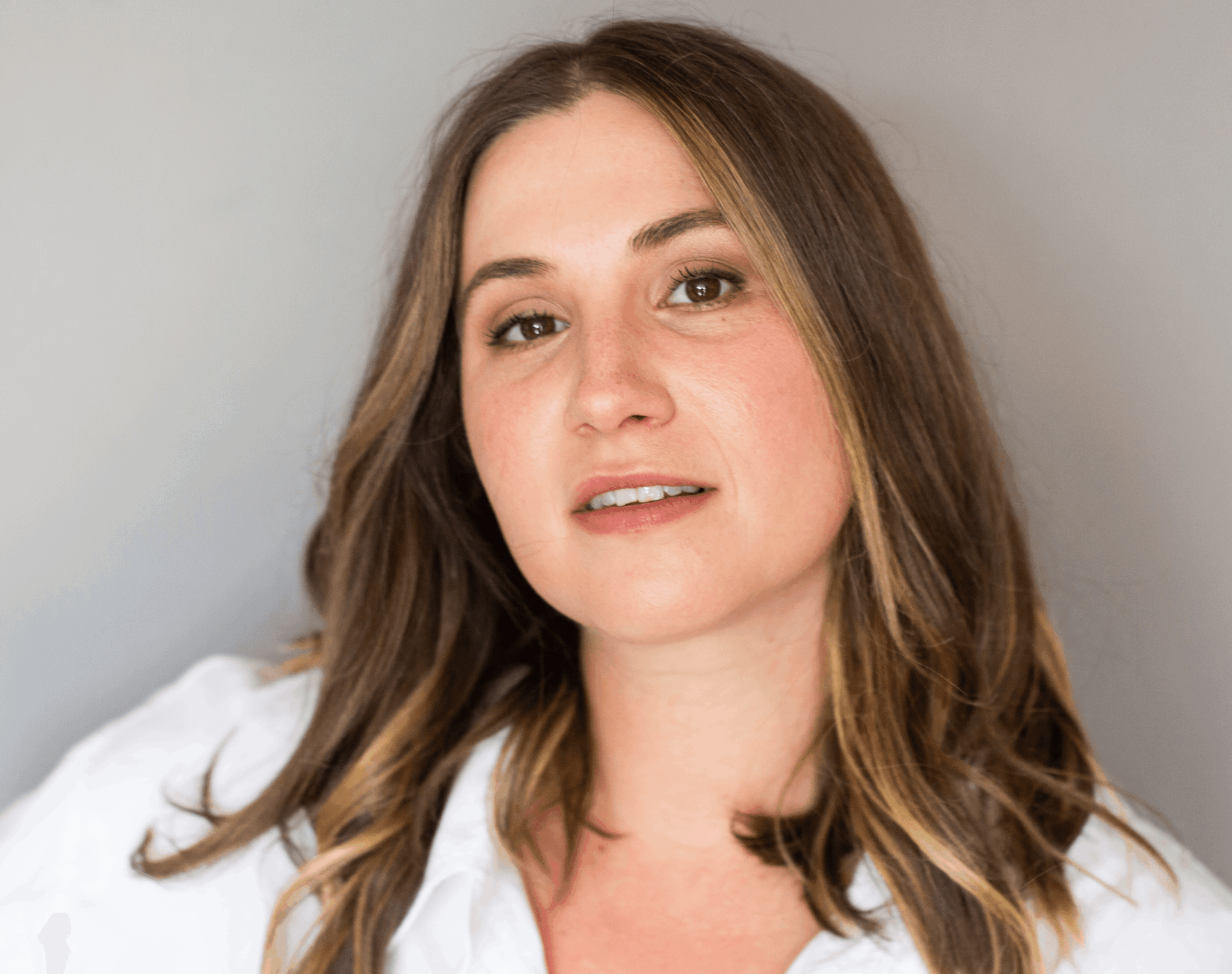We’re excited to introduce you to the always interesting and insightful Ellie Plourde. We hope you’ll enjoy our conversation with Ellie below.
Hi Ellie, thanks for joining us today. We’d love to hear about a project that you’ve worked on that’s meant a lot to you.
I recently produced and starred in “Kin” by Bathsheba Doran at The Chain Theatre in New York City, marking the inaugural production of my theatre company, Making Our Space Theatre Co. (MOS). It was my first lead stage role in over a decade, the most demanding producing project of my career, and the company’s boldest endeavor since its founding in 2023. Acting as both lead producer and lead actor, I had the opportunity to establish MOS as a legitimate force in NYC theatre, provide opportunities for fellow artists, and fulfill my own passion for performing.
MOS was originally created to provide rising actors with industry exposure while reinventing the traditional showcase model—offering more agency and access without the high costs imposed by for-profit companies. My inspiration stemmed from personal frustration with the pay-to-play system and the increasing gatekeeping in the industry. As a BFA student in Philadelphia, my senior showcase was audition-based, unlike many programs where participation is guaranteed. Despite receiving top audition marks, I was cut because the panel didn’t see a clear “type” for me. This experience haunted me throughout my twenties as I struggled to navigate an industry that often prioritizes marketability over artistry.
After moving to NYC, I participated in an expensive industry showcase through a for-profit company, grateful for the connections but still feeling misunderstood and powerless. I also later found out that the industry folks on the panel were not only paid to be there, but many also were not actively looking to sign new talent. I questioned why actors had become convinced that paying for workshops, costly showcases, or signing with major agencies were the only ways to access industry professionals. Inspired by the grit of pre-2000s NYC actors, I created a new kind of showcase—one where actors put on the show themselves, chose their own material, worked with experienced theatre directors, and engaged in grassroots outreach not just to agents and casting directors, but also indie filmmakers, producers, and theatre artists seeking fresh talent. Equally as important was that the industry professionals attending were NOT paid to be there and, instead, attended because they were curious about what we had created and, perhaps, were looking to meet new artists and make connections themselves.
In less than a year, MOS produced three industry showcases, leading to signings, auditions, and castings while fostering new artistic relationships and collaborations. By shifting the model, we empowered actors to take control of their careers, proving that talent and tenacity—not just financial privilege—open doors in this industry.
Riding the success of these showcases, my co-producers and I hungered to create more performance opportunities for ourselves and our actor friends. We also wanted to think beyond seeking industry attention and truly create a space in the NYC indie theatre scene for high-quality theatre at a fraction of the cost of Broadway, with a focus on new and underproduced works, platforming emerging playwrights and underrepresented actors (either without talent representation or identity representation in storytelling), and creating collaborative, ensemble-based work, which our showcases had already begun to model. We chased the rights to a Zoe Kazan play, which only had had one notable production in the country, that sadly didn’t pan out, at which point we had to pivot. A blessing in disguise, we discovered “Kin,” which had three roles perfect for us to perform in, and six other characters that we had the opportunity to cast from our community. An ensemble piece at it’s core about the complexities of love and friendship, identity, and how our bonds ebb and flow across space and time, it felt like a perfect fit for our inaugural production and personally, I felt deeply connected to the role I was set to play: “Helena.”
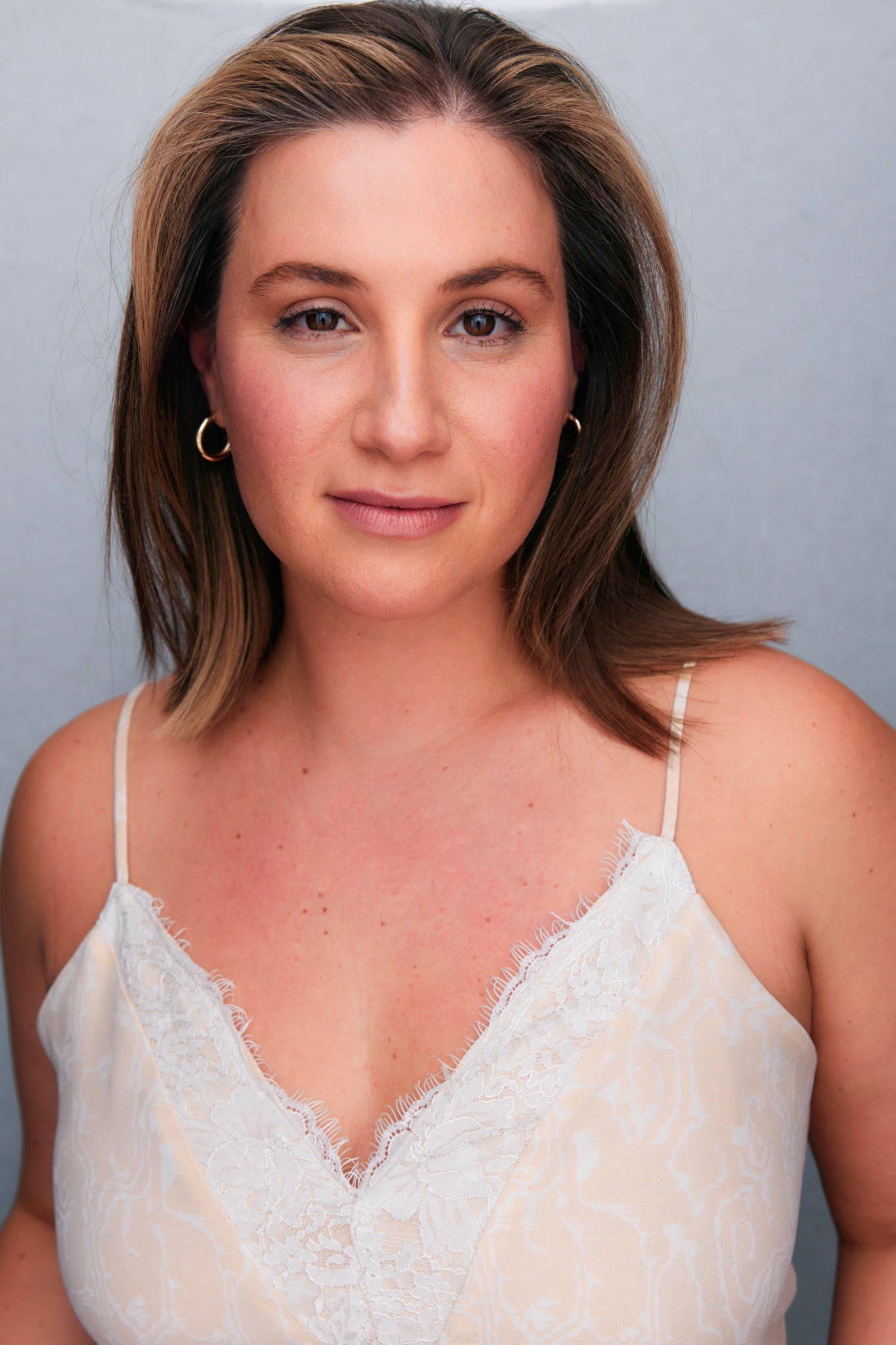
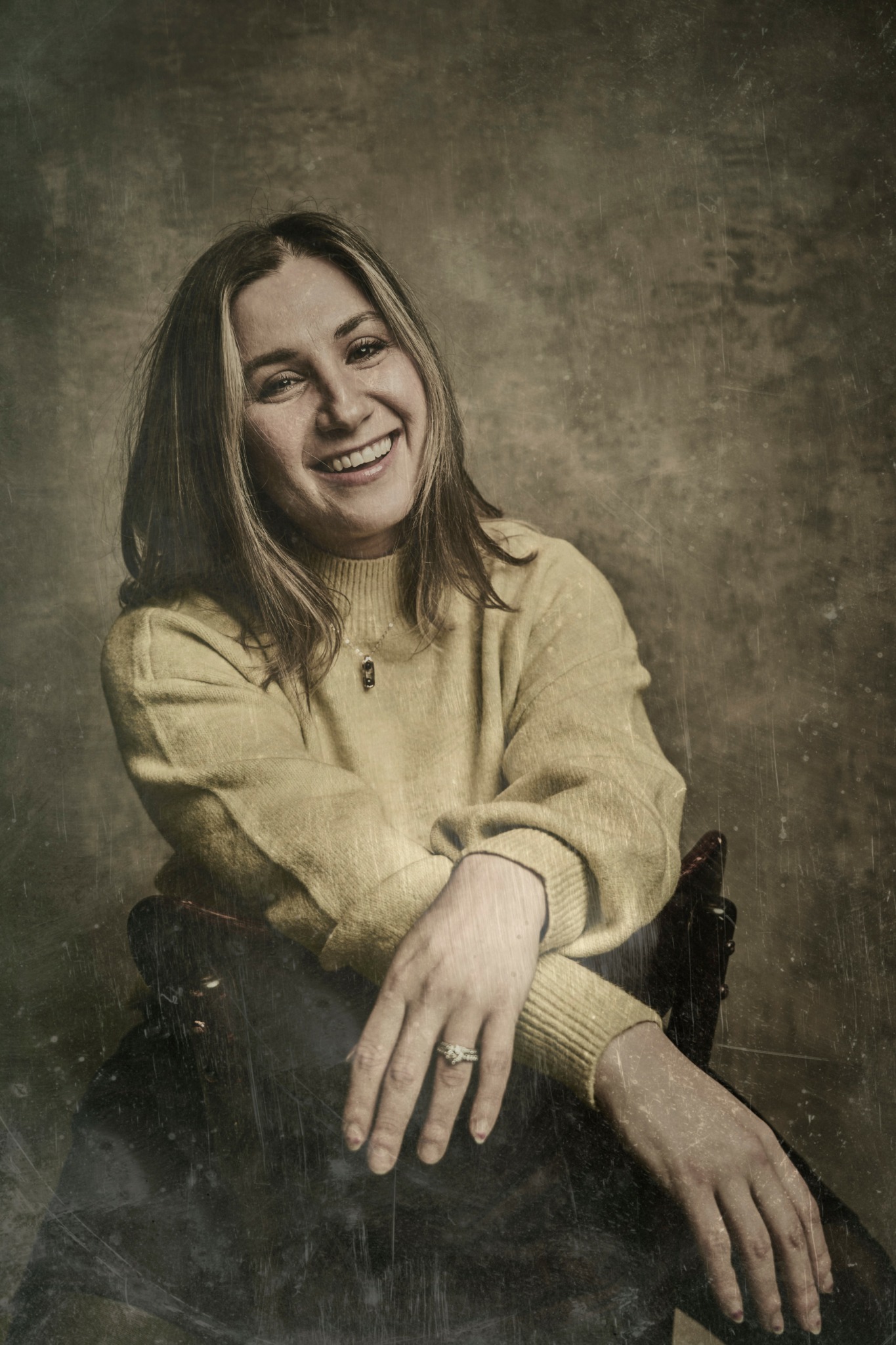
Awesome – so before we get into the rest of our questions, can you briefly introduce yourself to our readers.
I come from a family of creatives—my mother was a dancer, pianist, and writer; my Nana, a painter and actress; and my Papa, a writer as well. As a little Jewish girl with a flair for performance growing up in Raleigh, NC, it’s no surprise that I had little interest in the typical Southern pastimes like football games or YoungLife. Instead, I was drawn to—and deeply engaged in—the small but vibrant theatre community that existed there at the time.
Though my parents were divorced and rarely agreed on anything, they shared one crucial belief: that performing was my calling. With their support, I spent much of my childhood auditioning and performing in theatre, commercials, voiceover, and film, while also taking regular dance and voice lessons. I eventually went on to study acting at the University of the Arts in Philadelphia—an institution that, sadly, no longer exists. At the time, though, UArts felt like the Juilliard of Philadelphia. The training was intense, rigorous, and transformative. It taught me so much about myself and gave me a deep appreciation for the craft of acting—beyond the joy of simply being on stage.
My undergraduate years were incredibly rewarding. I was introduced to the Meisner and Williamson techniques, both of which deeply resonated with me and gave me a tangible process to approach the work. This was also the period when I fell in love with watching actors—almost as much as I loved being one! But it wasn’t without its challenges. I was never cast in faculty-directed mainstage productions, though I was consistently cast by my peers—student directors who gravitated toward underproduced works and new plays by fellow student playwrights. I was grateful for those opportunities, but I longed for the validation of the faculty, whom I saw as gatekeepers to the industry.
That longing peaked when, at the end of my time there, I wasn’t invited to participate in the senior showcase. I was told by the head of the acting program that I had received “the highest marks” from my audition, but that “the industry panel doesn’t know where to put you.” I took it incredibly personally. I assumed it meant I didn’t fit the mold they were trying to package and sell. No one had taught us how to market ourselves—we had been trained in craft and discipline, not in branding or business!
So I entered my twenties unsure of how to navigate the industry, though I continued working in indie theatre. Once again, it wasn’t the larger institutions in Philadelphia casting me—it was the next generation of artists. Over my time there, I performed in eight original works. In hindsight, those experiences laid the foundation for what would become a career not just as an actor, but also as a creator and theatre facilitator.
My first experience on the other side of the table came when I directed and produced the premiere of “This Is Not About 9/11” as part of the Philadelphia SoLow Festival—a documentary-style play written by my dear friend Sarah Van Auken. Sarah’s story and her remarkably sharp, deeply moving writing were a gift to work with as a first-time director and producer. I was honored by the trust she placed in me, and we were rewarded with a sold-out run and an invitation to remount the production in New York City, where we felt the play’s impact could be even more resonant. We brought our scrappy, grassroots work to the Big Apple—and once again, we sold out! It was quite a ride. Every step of that journey taught me about the intricacies of independent theatre-making and confirmed something I already sensed: I would return to theatre production. I fell in love again with watching the work unfold and gently shaping it to make a lasting impact on stage. Additionally, as the child of a 9/11 victim who was forced to grieve publicly throughout much of her childhood, Sarah’s voice—and her experience—had long been “othered.” Reflecting on my own upbringing as a Jewish artist in a deeply Southern, Christian town, that sense of otherness deeply resonated with me. Amplifying stories like Sarah’s quickly became central to my artistic mission. In many ways, this play foreshadowed the kind of work I would go on to produce. (More on that later 😉)
After moving to New York City, I was quickly introduced to the thing they didn’t teach us in college: how to market yourself. Enter casting director workshops, manager and agent appointments, and the world of paid showcases. During the pandemic, when everything moved to Zoom, I dove into this world of “pay-to-play” classes. I learned a lot, and I believe there’s a place for them in the industry—but I also became increasingly frustrated. Once we returned to in-person events, I paid to participate in a particularly expensive showcase, hoping it might finally open some doors. It didn’t go as I’d hoped. I signed with a manager, but ended the relationship after seven months—it just wasn’t the right fit. I met countless casting directors—none of whom have called me in. One agent expressed interest in me, only to later tell me he had too many of my type on his roster. Naively, I had assumed the agents and managers in attendance were actively looking for new talent. It turns out many had closed rosters and were simply being paid to show up.
The idea for the Making Our Space showcase came from stories I’d heard about actors in the ’80s and ’90s who took charge of their own careers—putting up showcases, inviting industry professionals, and creating opportunities without the pay-to-play model that’s become so common today. I decided to take the bull by the horns and do just that. I launched a recurring, non-profit showcase designed to offer NYC actors a chance to collaborate on scenes and songs in a supportive, process-oriented environment—with a real, grassroots effort to invite a diverse range of industry professionals: producers, directors, indie filmmakers, not just agents and casting directors. And no, we weren’t paying them to be there.
The showcase centered process, community, and craft. It spotlighted underrepresented actors on the rise, and fostered connection between artists and industry professionals in a more authentic and meaningful way. Over the course of three showcases, actors signed with reps, received audition and self-tape requests from casting directors, were cast in theatre and film projects—and, perhaps most importantly, walked away with a renewed sense of artistic community.
Out of this effort, Making Our Space Theatre Co. (MOS) was born. I founded the company alongside two of my most cherished collaborators, Sophia Castuera and Eli Mazursky—actors in the very first MOS showcase who believed so deeply in the mission that they came on board to co-produce the final two showcases. Together, we decided to grow the initiative into a full-fledged theatre company—something I had always dreamed of.
Riding on the momentum of those early showcases—and the growing need we witnessed from fellow NYC actors for both real artistic community and accessible performance opportunities—we founded MOS to provide just that. Affordable, high-quality theatre that foregrounds craft, collaboration, and inclusivity—not only for artists, but for audiences, too. Equally as important, we wanted to make space for the underdogs, both the underrepresented voices and artists and the underproduced works that industry and audiences hadn’t yet discovered.
Our inaugural production was “Kin” by Bathsheba Doran, directed by beloved collaborator and company member Spencer Whale, and presented at The Chain Theatre in Midtown Manhattan. It felt like the perfect piece to launch our company: a moving, ensemble-driven play by a queer, female playwright about identity, chosen family, and the evolution of our most intimate bonds over time and distance. It reminded us why we need each other—and how thrilling theatre can be when it’s not just coming from the same straight, white male perspective. Bash’s play only had one previous run in NYC at Playwright’s Horizons. It is such a stunning, lyrical, and deeply human work that it was mind-boggling to discover it hadn’t been produced more frequently.
The run received glowing reviews from critics and audiences alike, and I’m incredibly proud of what we created together. My performance in the show—and the work I helped produce—is the thing I’m most proud of in my career to date. But more than the optical success, it was the internal success that meant the most: the collective triumph of our creative team to bring such a stunning, resonant production to life. I also had the most rewarding director-actor collaboration of my career working with Spencer Whale. He’s brilliant, generous, and an absolute gift to actors. I’m positive it is only a matter of time before his name is on a Broadway marquee.
With “Kin,” we proved that it’s entirely possible to create inclusive, high-quality theatre in New York’s indie scene—without asking artists or audiences to break the bank. Participating in theatre should still feel like it’s about something larger than yourself, and experiencing it shouldn’t cost a quarter of your rent. Just as importantly, this production affirmed how essential an aligned, collaborative artistic community is to making that vision a reality.
On a project level, “Kin” is the piece I’m most proud of. But on a broader level, I’m even prouder of the mark our company is making in the NYC independent theatre scene. I couldn’t do any of it without my Co-Artistic Directors, Eli Mazursky and Sophia Castuera, our Director of New Works Spencer Whale, our Associate Producer Shay McWeeney, and the rest of our incredibly talented company members.
There is a real hunger among the next generation of artists for a brave, inclusive space that specifically platforms underrepresented and new voices. A space where high-quality work is prioritized, industry barriers are broken down, and meaningful community is built. A space where individuality is celebrated—not at the expense of rigor, but alongside it. We know that’s a tall order. And while I haven’t yet seen a company doing ALL of this, we’re surely giving it our best shot. I never accomplished anything meaningful without being wildly ambitious.
There are a lot of indie theatre companies in New York, and I think it’s remarkably brave to start one—no matter what kind of work you’re making. We’re not living in a time, or a country, that celebrates artists. The state of TV and film, and the devastating cuts to the NEA, are proof of that. But to be candid, there’s also a lot of independent theatre that’s hard to sit through—not because it’s risky or experimental, but because it lacks artistic clarity, communal grounding, or real creative intention. Too many artists feel unsupported, and the work suffers as a result.
One of the most valuable gifts of founding this company has been the education I’ve received in the hidden resources of independent theatre-making. I used to believe the only options were to go fully non-profit—meaning constant fundraising and answering to a board—or fully commercial, with all the pressure and privilege that entails. But MOS found a sweet spot in between: fiscal sponsorship.
Thanks to our sponsorship from Producer Hub and The Field, we enjoy many of the benefits of 501(c)(3) status—eligibility for grants, tax-deductible donations, access to sponsorships (shoutout to Actors Federal Credit Union– our company sponsor!) and partnerships (another shoutout to Zeam NYC), marketing and fundraising support, tax assistance, and a stronger institutional reputation—without the overhead of a full nonprofit infrastructure. It has been a game-changer. And it’s now part of our company’s mission to share this knowledge with other artists and offer our resources to those looking to collaborate or build something of their own.
We’re only in our second year, but we’re making waves—and we’ve got a lot planned. If you’re a theatre artist in NYC—an actor, director, designer, stage manager, producer, playwright—and our mission resonates with you, we want to hear from you. We have so many exciting events in the pipeline, and we’re always eager to collaborate and help others make their space.
Outside of my work with MOS, I’ve been reconnecting with my love of watching actors work. In truth, I was essentially a Casting Director for “Kin.” Sophia, Eli, and I managed the early rounds—reviewing submissions, watching tapes, and narrowing the talent pool—before presenting our top choices to Spencer. Final casting was collaborative, and I found the whole process to be deeply rewarding. Since then, I’ve been slowly building a side hustle as a casting professional. Most recently, I served as Casting Director on “We Know It Was You,” a murder mystery comedy short written and directed by Delaney Flanagan (Big Apple FF, Napa Valley StreamFest), and served as a Casting Assistant to Melina Valdez (Sundance alum) on her project “River Through the Junkyard,” part of the Perfect 10s Showcase.
As an actor myself, I have a deep understanding of how tough and often mystifying this industry can be—especially when it comes to auditioning. There is nothing worse than walking into a room with low energy. I don’t understand it. My goal as a casting professional is always to make actors feel comfortable and empowered to do their best work. Period.
The reality is, most actors won’t book the job—and rejection, especially without feedback, can be demoralizing. But even if you don’t get the part, a positive audition experience can leave you feeling seen, inspired, and artistically invigorated. I believe that’s our responsibility as casting professionals. Actors are sensitive, brave, deeply vulnerable humans—and for good reason. We owe it to them to treat them as such. A lot of casting directors wouldn’t agree with me. And that’s fine. I’m happy to stay in my own lane on that. So if you’re looking for an actor-friendly Casting Professional for your project, one who cares deeply about grounded work and good vibes in the room, I’m available for hire! I’m NYC-based, but also happy to work remotely.
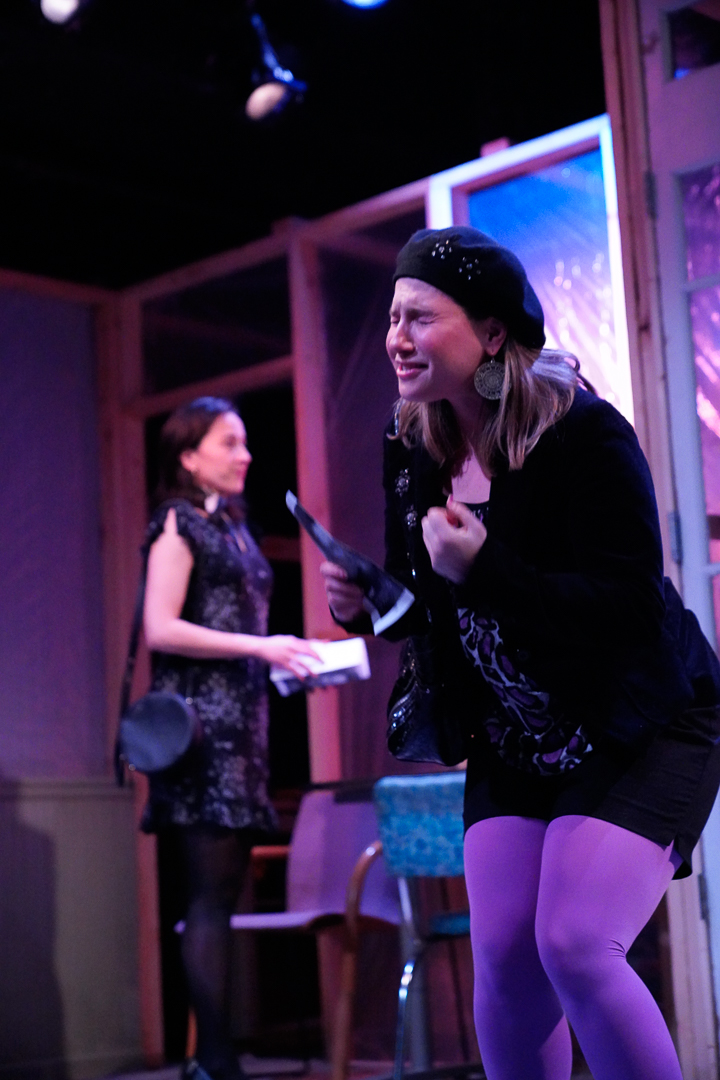
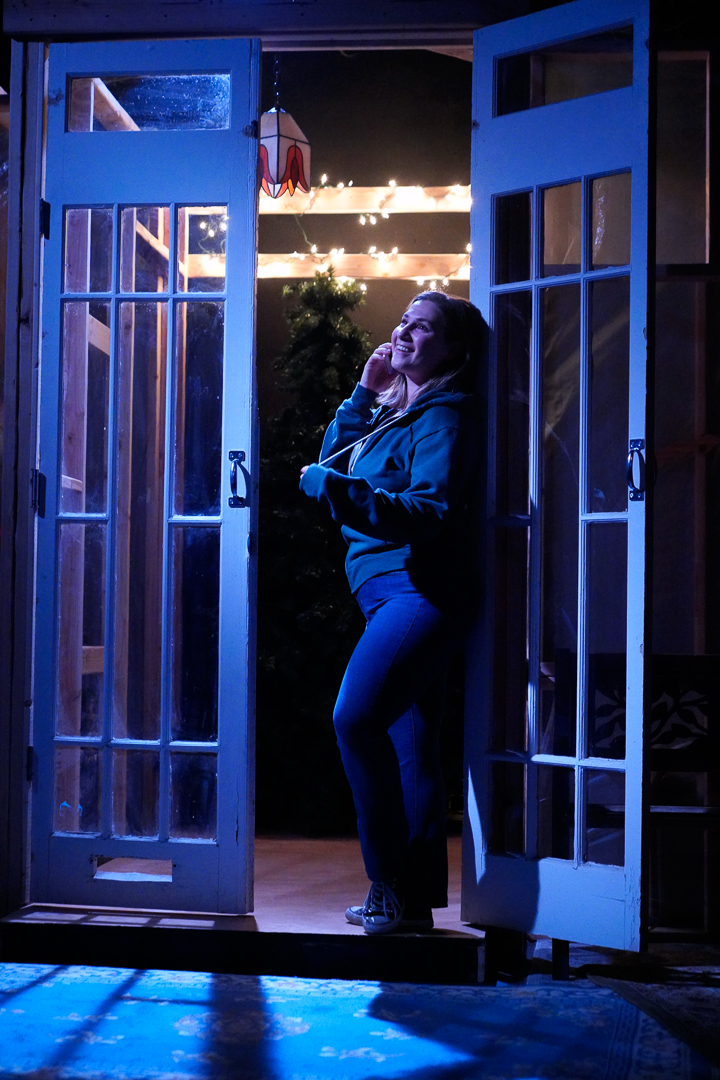
What can society do to ensure an environment that’s helpful to artists and creatives?
This question feels especially urgent given the current state of our country—and the state of our industry under the current administration. For those who may not know, Film & TV has been in crisis for years, taking hit after hit—particularly in the last five. A global pandemic shut down sets and introduced suffocating restrictions. The dual WGA and SAG-AFTRA strikes halted production again. The explosion of streaming platforms obliterated fair residual income. Wildfires devastated Los Angeles. Production has been cut in half. Filming has largely shifted to Canada and overseas. Producers are hesitant to invest without marquee-name talent, and as a result, those stars are now taking smaller roles that once helped emerging actors break through. That same “star power” is sweeping both Broadway and Off-Broadway as producers scramble to please shareholders, retain subscribers, attract investors, or simply break even. It’s harder than ever to get work in this industry.
So what can you do? The most immediate, tangible way to support a thriving arts ecosystem is to put cold, hard cash into it. That means investing in both the larger nonprofit theatre companies and the small, scrappy, promising ones. It means supporting that independent film your sister’s friend is pouring her heart into. Because resources are incredibly limited—and yet, at the end of the day, what do you turn to after your 9-to-5? Chances are, you’re in bed streaming a series or racing to make curtain at the theatre. I won’t accept the argument that the arts—especially performance—aren’t essential. They are.
And if you don’t have cash to give or spend, do you have other resources to offer? Can you donate or offer free space for a performance or shoot? Do you own a clothing company and have items you could loan or gift to a project—and get a tax write-off? Do you have industry connections you could use to recommend an artist for steady work alongside their freelancing? These are simple, effective ways to help artists and the industry stay alive.
Lastly, get your butt in theatre seats—especially when it comes to independent theatre. A handful of extra $30 tickets can cover the cost of a five-hour day of rehearsal space. And beyond the financial impact, you’d be amazed at what a sold-out house does for morale, optics, and momentum. Your presence matters more than you think.
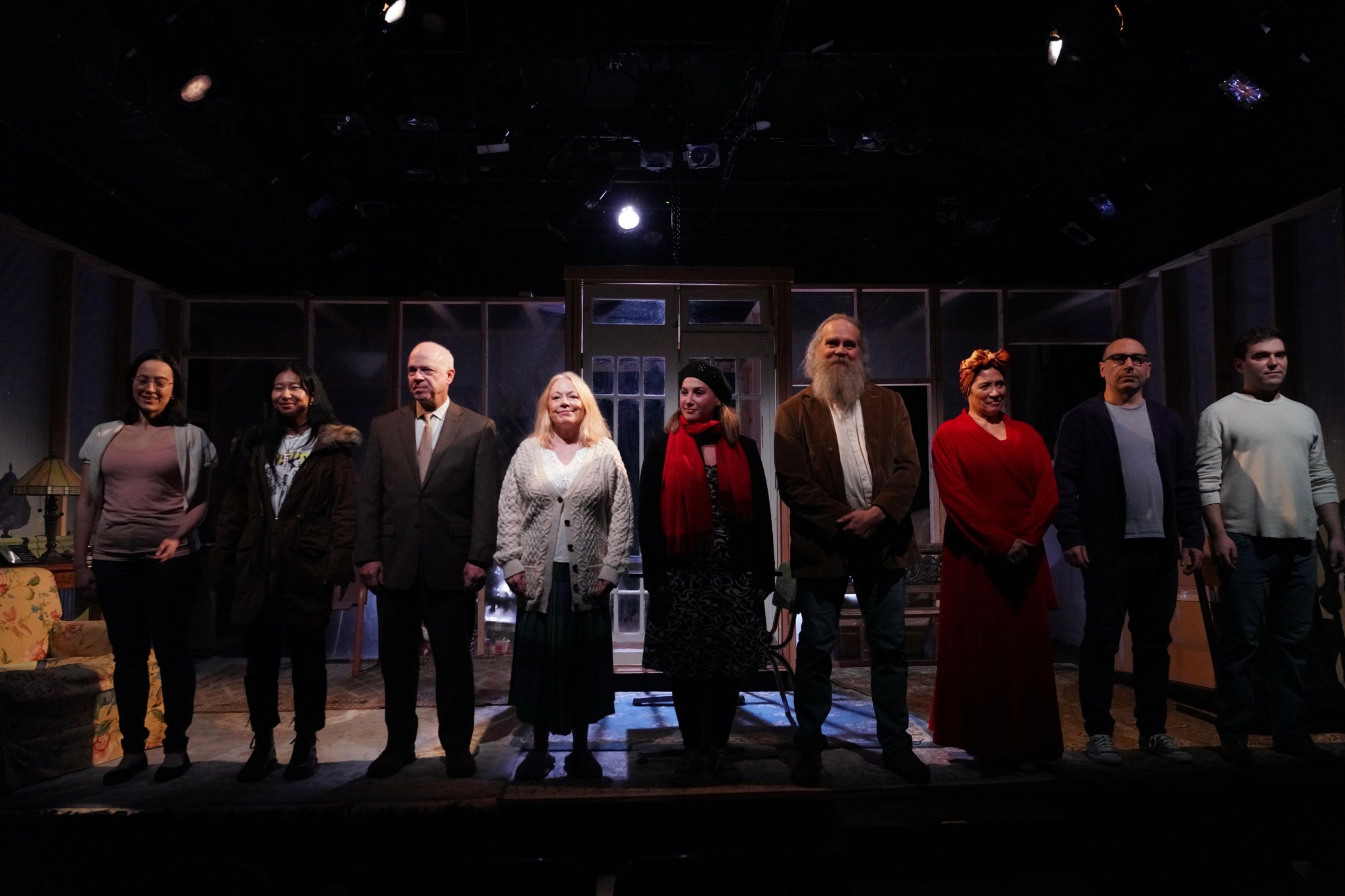
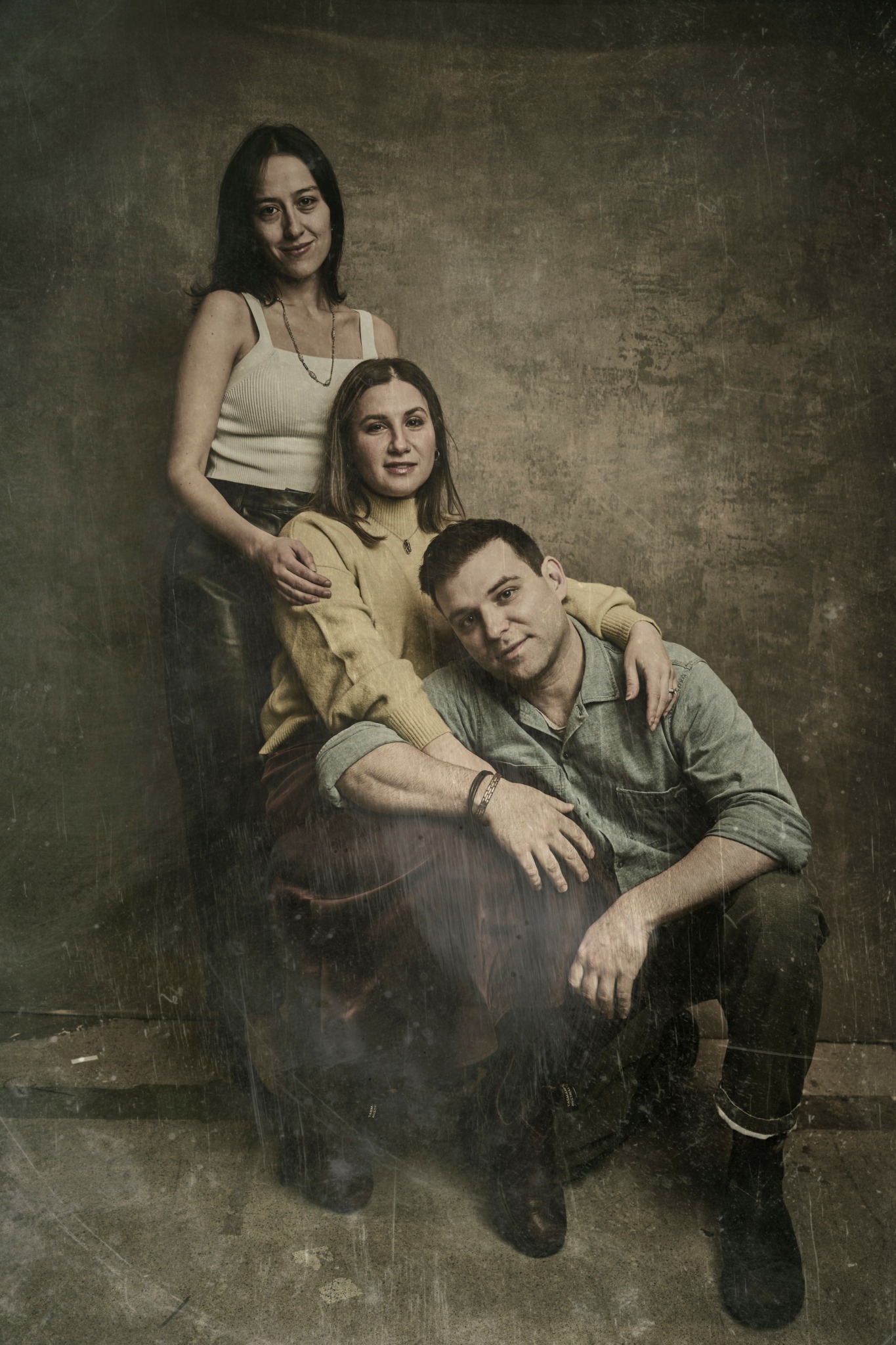
Looking back, are there any resources you wish you knew about earlier in your creative journey?
Let’s be real: if you’re going through a traditional BFA or conservatory-style acting program and not being taught the business side of this industry, you’re already behind. This was me. I lacked the education on the business side of our business, which would have been a vital resource earlier in my career.
It’s not enough to be talented. It’s not enough to be well-trained. You need to know how to market yourself. You need to understand industry trends, have the right equipment, know how to network authentically , self-produce, build your artistic circle, and most importantly—create your own opportunities. This is the stuff I wish I’d learned earlier.
Too many programs are still operating like it’s 1995. They’re run by teachers who aren’t actively working in the field and/or are laser-focused on craft—which matters, sure—but the truth is, talent is only a tiny part of what employs you.
As an actor, are you easy to work with? Do you take notes without ego? Can you make a room warmer just by being in it? Who do you know? What do you bring beyond your acting work?
These aren’t side notes. This is the job. And until our training institutions catch up, it’s on us to learn it, live it, and pass it on.
We’re not just artists. We’re businesses and we have to act like it. Not at the expense of our art, but in support of it.
Contact Info:
- Website: www.elliemplourde.com, www.makingourspace.com
- Instagram: @elliemplourde, @makingour_space_theatreco
- Linkedin: https://www.linkedin.com/in/elliemplourde
- Youtube: https://www.youtube.com/@MakingOurSpaceTheatreCo, https://www.youtube.com/@elliemplourde
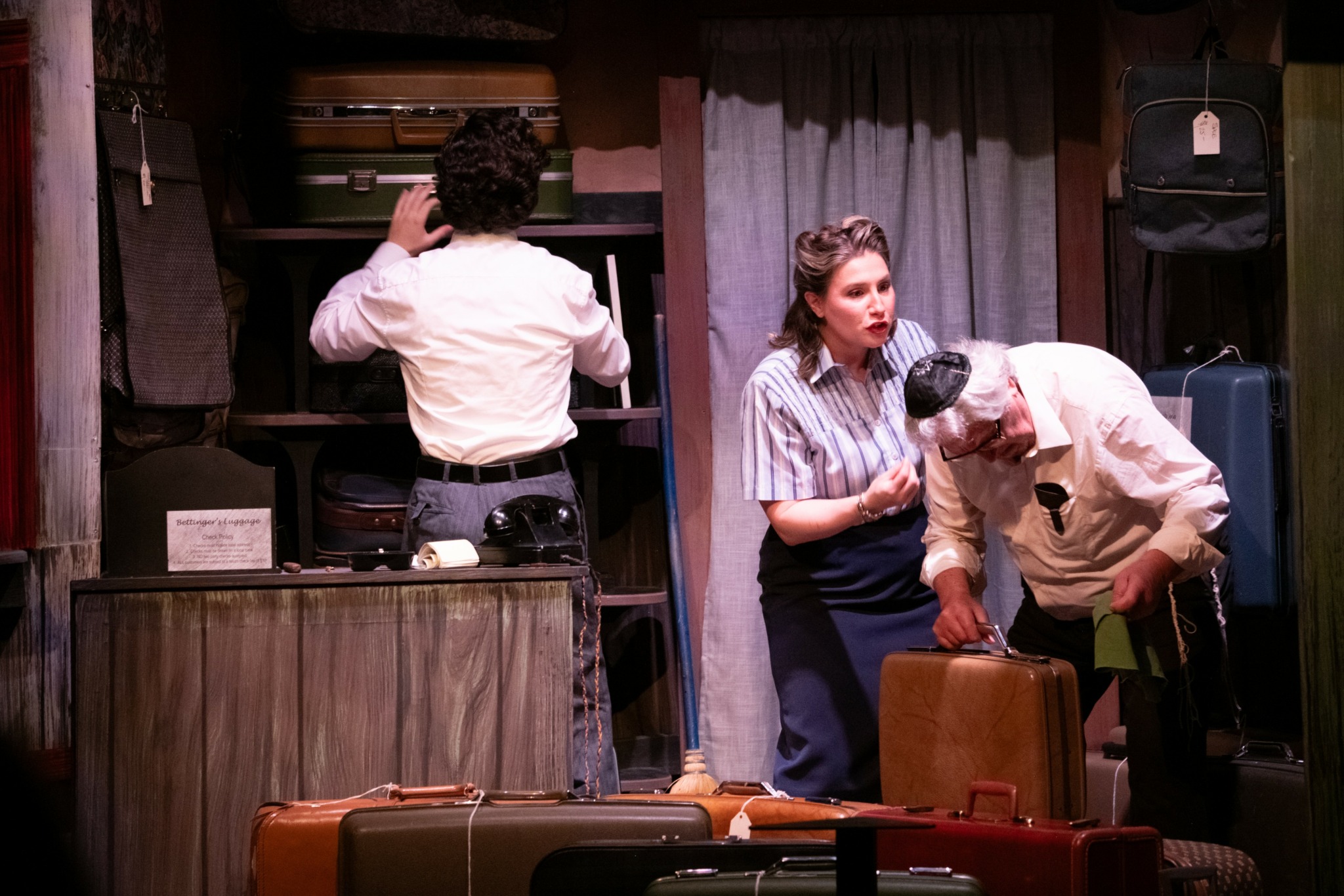
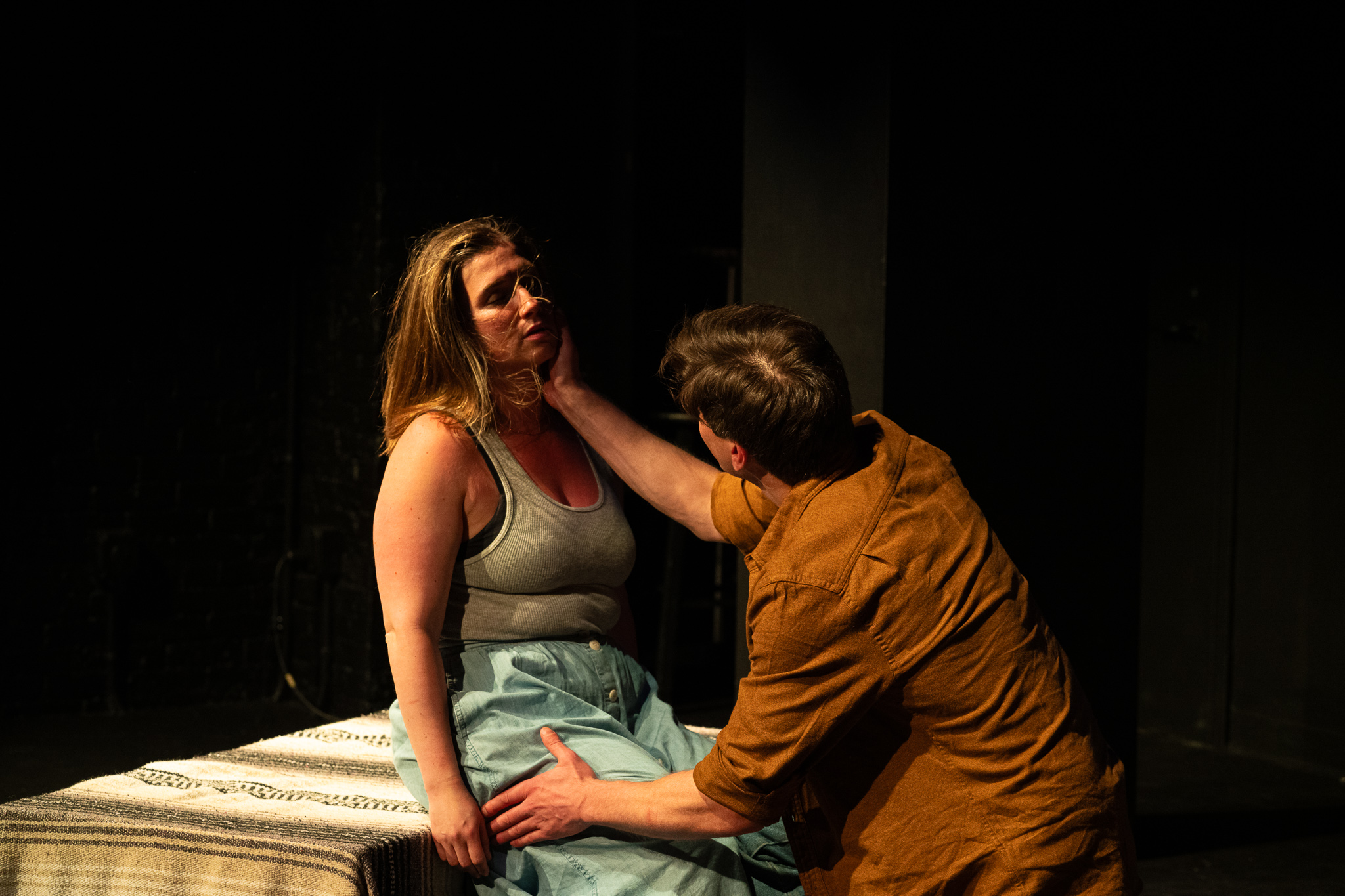
Image Credits
J Demetrie Photography, Fabrice Trombert Photography, Yichen Zhou Photography, Aubrey Lace Taylor Photography, Eli Percy Photo


